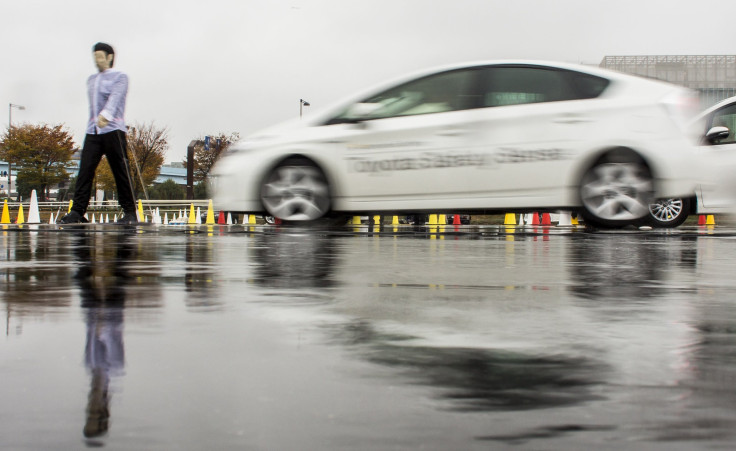Self-Driving Cars: Japan Wants To Establish Global Standard For Autonomous Vehicle Technology, Safety, Infrastructure

Japanese automakers are teaming up to develop parts, technologies and an infrastructure strategy for self-driving cars out of fear that U.S. and European carmakers are taking the lead in establishing global standards. Japan’s leading car companies and parts suppliers are meeting before the end of the month with government officials to map out a strategy that could be completed sometime this summer, according to a report Thursday in Nikkei Asian Review.
“We will set up a so-called self-navigation business conference so that we can discuss what measures we need to take,” a spokesperson from Japan’s Ministry of Land, Infrastructure, Transport and Tourism told Malaysia’s Rakyat Post.
The project will bring Japanese transport officials together with Toyota, Honda and Nissan, as well as parts suppliers Denso, Panasonic and Hitachi. The research institutes at the University of Tokyo and Nagoya University will also contribute to the effort. Japan is hoping that the collaboration will allow them to establish common parts specifications and safety regulations (including crucial protections against car hacking) that could be adopted globally.
German is currently one of the leaders in establishing international safety standards for self-driving car technology, and the Japanese fear this would put them at a disadvantage because the standard could favor German parts manufacturers and force others to follow. Meanwhile, Silicon Valley giants Google and Apple have their own self-driving car projects in the works.
The government’s role will be to focus on how to establish smart-road infrastructure standards, such as systems that can relay traffic and accident data in real time. This technology could be used to change the speed limits on electronic signs to calm traffic, or to relay road construction warnings directly to smart car dashboards.
The government is already committed to working with automakers in Japan to invest 10 billion yen ($83.4 million) to build test roads, Nikkei reported.
Automakers, parts suppliers and researchers will collaborate to establish standards for making the hardware, such as the sensors used to detect other cars and road obstacles, and the software to control the systems.
Currently German private conglomerate Bosch has taken a lead in testing self-driving car technology in Stuttgart. The company is the biggest supplier of sensors for the automotive industry, including the ones use in Japanese cars.
German, U.S. and Japanese carmakers all expect some form of commercially available self-driving functions to be available in the marketplace in five years. But with regulatory and infrastructure challenges, it’s possible the technology will be initially relegated to simple functions, such as a car that can find its own parking spot in a garage, and more advanced versions of currently available self-driving features offered by Mercedes-Benz and Tesla Motors.
© Copyright IBTimes 2025. All rights reserved.






















